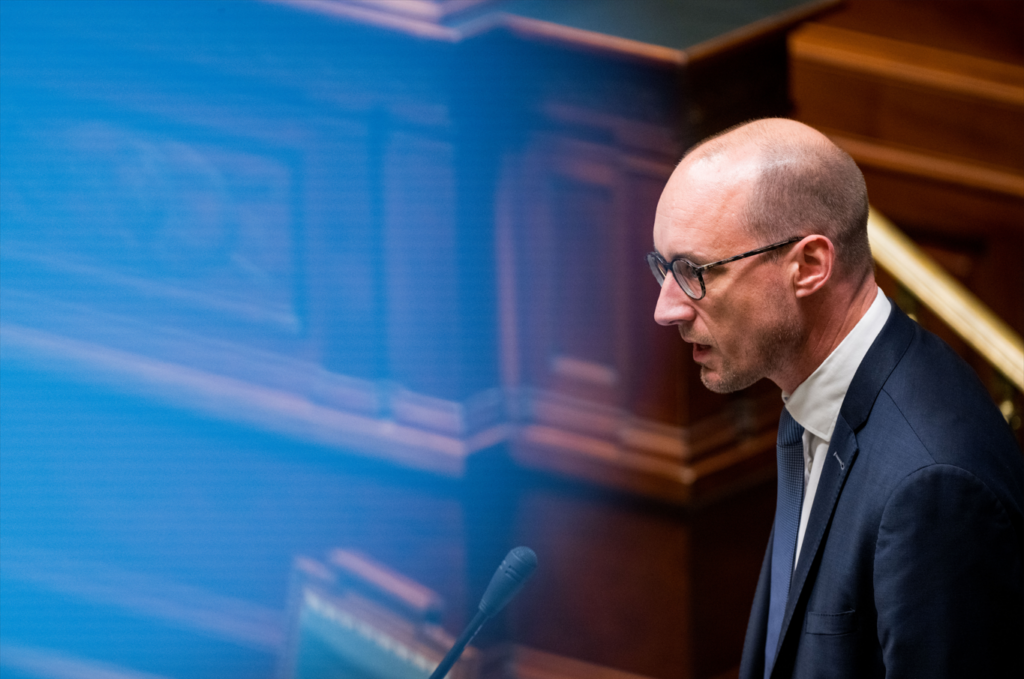Belgium's next Federal Government must address the country's budgetary issues to prevent the EU from taking control, Finance Minister Vincent Van Peteghem (CD&V) has warned. He argues that new EU budget rules must serve as an additional incentive for reforms.
As the current President of the Ecofin Council (the assembly of the 27 EU Economic and Finance Ministers) Van Peteghem has overseen an agreement about reforms of the EU's oversight of national budgets. The changes, ratified on Saturday night, will allow Member States slightly more breathing space to get their finances in order.
Belgium's national budget deficit is on course for 5% of annual GDP in 2025, significantly above the 3% limit previously set by the EU's Maastricht Treaty. The fiscal rules had been eased in light of challenges such as the pandemic and the energy crisis that followed Russia's invasion of Ukraine, during which time the national deficit has grown. But continuing to pass the hot potato is no longer an option, said Van Peteghem.
"We must avoid that Europe takes over at a certain point. We are still at the wheel now, but we must avoid ending up in the penalty box with Europe imposing things on us," he said on Flemish radio on Tuesday.
Finding €3.9 billion
Under the new terms, Belgium will need to save a predicted €27 billion over seven years to rein in its high budget deficit and public debt, despite its above-average economic growth last year.
Van Peteghem's office estimates that the new rules will require saving efforts amounting to 0.65% of gross domestic product (GDP) per year for Belgium – around €3.9 billion of GDP in 2024. This will need to be sustained over a period of seven years, L'Echo reports. "But it is subject to negotiation with the Commission as it must remain achievable for the Member State."
"That penalty box still exists and we can still end up there in the future," the minister cautioned. "Now there is a new framework, within which Member States have more flexibility to make choices. But afterwards they will be stricter and apply sanctions effectively."
The EU remains committed to reducing debt to 60% and keeping national deficits below 3% of GDP. However the reform will make this more achievable for nations, requiring slightly less drastic intervention.
Compared to the current framework, the new rules give Member States greater flexibility, Van Peteghem stressed. But in return for a long-term tailored financial trajectory, both controls and sanctions will become more stringent.
While the current government is making efforts to demonstrate fiscal responsibility, this will be a priority for the upcoming government after the elections in June, Van Peteghem said. The new government will have to set out a multi-annual budget trajectory, with significant reforms in areas like pensions and healthcare where expenditures are on track to increase substantially.
The minister believes that the solution lies in more thorough coordination of decisions at the European level. But he acknowledged that "some courage and leadership" will be needed to ensure Belgium can get its budget in order.
"You can look at those rules pessimistically or optimistically. I think you have to look at them realistically. We know that our budget is not good and we will have to have the courage to say that efforts and reforms are needed, to protect our social security and our welfare state."

